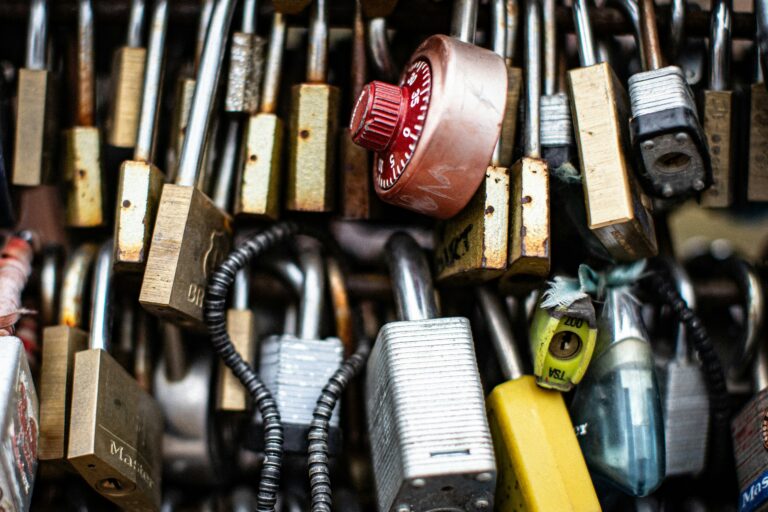You’re lying there at 2 AM, staring at the ceiling, and their face keeps popping into your mind. That person you promised forever to. The one you imagined growing old with. Now you’re wondering how on earth you’re supposed to forget someone who once meant everything to you.
Trust me, I get it. After years of helping people navigate heartbreak as a relationship therapist, I know this feels impossible right now. The person you love deeply doesn’t just disappear from your heart because the relationship ended. But here’s what I’ve learned: while you might never completely erase them from your memory, you absolutely can learn to forget the overwhelming feelings that keep you stuck.
This isn’t about becoming cold or pretending they never mattered. It’s about reclaiming your peace, your happiness, and your future. Ready to learn how to do this without losing yourself in the process?Can You Forget Someone You Truly Love?
The honest answer? You may never “forget” them like you forget an old password. But what you can forget or better yet, release are the overwhelming emotions tied to them.
Think of it like this: when a loved one passes away, you don’t erase their memory, but over time, the pain softens, and you can remember them without breaking down. The same applies here. You’ll carry memories of the person, but you won’t always carry the sting.
For example, a client of mine once told me about her fiancé who ended their engagement just three months before the wedding. At first, she couldn’t imagine a life where she didn’t wake up thinking about him.
But little by little, as she built new routines, picked up hobbies, and leaned on supportive friends, she found herself smiling again. The memory of him remained, but the pain lost its power.
So yes, you can move forward and “forget” in the sense that the emotional hold weakens and your heart opens to new love and joy.
I’ve guided hundreds of people through this process, and they’ve all asked the same question you’re asking right now. The ones who succeed share one thing in common: they committed to the process even when it felt impossible.
Why Is It Hard To Forget Someone You Love?
Love literally changes your brain chemistry. When you’re in love, your brain releases dopamine, oxytocin, and other chemicals that create powerful emotional bonds. Breaking those bonds doesn’t happen overnight.
Here’s what makes it so challenging:
- You’ve built your identity around the relationship. Your plans included them
- You’ve created shared meaning and experiences that feel irreplaceable
- Your brain is wired to seek the comfort and safety this person once provided
- You’re grieving not just the person, but the future you imagined together
Plus, let’s be real love feels amazing. Even when it hurts, part of you doesn’t want to let go of those intense feelings because they made you feel alive, special, and deeply connected to another human being.
Your brain interprets letting go of love as a threat to your well-being. That’s why it fights so hard to keep those feelings alive, even when they’re causing you pain.
How Long Does It Take To Forget Someone You Love?
There’s no universal timeline for getting over someone you love deeply. I’ve seen people bounce back in a few months, while others take years to fully heal. The timeline depends on several factors:
- How long did the relationship last
- How deep the emotional connection was
- Whether you’re actively working on healing or just hoping time will fix everything
- Your support system and coping strategies
- Whether you maintain contact with this person
Research suggests it takes about 11 weeks to start feeling significantly better after a breakup, but complete emotional detachment often takes much longer. The key isn’t rushing the process, it’s making sure you’re actively participating in your own healing.
Don’t compare your timeline to anyone else’s. Your healing journey is uniquely yours, and that’s perfectly okay.
18 Practical Ways To Forget Someone You Love
These strategies come from years of clinical experience and research on attachment, grief, and emotional healing. They work because they address both the practical and emotional aspects of letting go.
1. Accept It Has Happened

Denial keeps you stuck in a painful loop. The relationship is over. They’re no longer part of your daily life. Whatever you had together exists only in the past now.
I know acceptance feels like giving up, but it’s actually the first step toward freedom. When you stop fighting reality, you can start building a new one.
Acceptance doesn’t mean you’re okay with what happened or that you wanted it to end. It means you’re acknowledging what is, rather than what you wish could be. This shift from resistance to acceptance is where healing begins.
Write it down if you need to: “My relationship with [name] is over. I am no longer in a romantic relationship with them.” Sometimes seeing the words makes the reality feel more concrete.
2. Make A Decision To Move On
Everything in your life stems from the decisions you make. Right now, you need to make a conscious choice to prioritize your healing and your future over clinging to the past.
This isn’t a decision you make once and forget about. You’ll need to choose healing every single day, sometimes multiple times a day. When you feel tempted to text them, when you want to check their social media, when you start fantasizing about getting back together that’s when you remind yourself of your decision.
Write down your commitment to yourself. Make it specific: “I choose to focus on my healing and my future rather than trying to hold onto someone who is no longer part of my life.”
Having this written commitment gives you something to return to when your emotions try to override your logic.
3. Don’t Chase Them
Chasing someone who has already walked away only prolongs your pain. I know the urge to reach out, to apologize, to convince them to give you another chance. But here’s the hard truth: if they wanted to be with you, they would be.
Chasing them keeps you in a state of false hope. It prevents you from accepting reality and moving toward actual healing. Every time you reach out, you’re essentially restarting your healing process from square one.
Use apps like Freedom or Cold Turkey to block their number and social media if you need to. Remove the temptation entirely during your most vulnerable moments.
The strength it takes not to chase them is the same strength you’ll use to build your new life. Practice using that muscle.
4. Get Rid Of Reminders
Your environment should support your healing, not sabotage it. Those photos on your nightstand, their clothes in your closet, the playlist you made together all of these are emotional landmines that will trigger memories and longing.
Create a systematic approach:
- Box up photos (don’t throw them away if you’re not ready, just put them somewhere you won’t see them)
- Delete songs that remind you of them from your playlists
- Return or donate their belongings that are still in your space
- Change your wallpaper if it includes them
- Rearrange your living space to create new associations
Use apps like Google Photos to archive pictures instead of deleting them completely. You can decide later what to do with them when you’re in a healthier headspace.
How To Forget Someone You Love Deeply
5. Disconnect Emotionally

Emotional disconnection is about changing how you think about this person and your relationship. Instead of seeing them as your soulmate or the love of your life, you need to start seeing them as someone who was important to you for a period of time but is no longer part of your story.
This cognitive shift takes practice:
- Stop referring to them as “the one who got away.”
- Start thinking of the relationship as a chapter that’s closed, not an unfinished story.
- Focus on their human flaws rather than idealizing them
- Remember that they chose to leave, which means they weren’t as committed as you thought
Emotional disconnection doesn’t mean becoming bitter or angry. It means developing a neutral, realistic perspective about who they were and what the relationship actually was versus what you hoped it could be.
6. Forgive Yourself
Self-blame will keep you stuck in the past. Whether you think you contributed to the breakup or feel stupid for not seeing the signs, carrying guilt and shame only makes healing harder.
You made the best decisions you could with the information and emotional capacity you had at the time. That’s all anyone can do. Maybe you made mistakes, welcome to being human.
Write yourself a compassionate letter acknowledging your pain and your humanity
Practice self-compassion meditation using apps like Insight Timer
Talk to yourself the way you’d talk to a good friend in the same situation
Acknowledge that growth comes from experience, including difficult on
7. See A Therapist
Professional support can significantly shorten your healing timeline. A therapist helps you process the grief, understand unhealthy patterns, and develop better coping strategies.
Therapy isn’t just for when you’re falling apart it’s for when you want to put yourself back together in a healthier way. A good therapist will help you understand why this relationship was so significant and how to build better ones in the future.
Consider platforms like BetterHelp or Talkspace for online therapy options. Many people find it easier to open up about heartbreak when they can do it from the comfort of their own space.
Look for therapists who specialize in attachment, grief, or relationship issues. They’ll have specific tools and insights that can accelerate your healing.
8. Reach Out To Friends And Family
Isolation makes everything worse. Your friends and family love you and want to support you through this difficult time. Let them.
Don’t worry about being a burden, true friends and family members want to help you heal. They care about your well-being and happiness and supporting you through heartbreak is part of loving you.
Ways to connect:
- Schedule regular check-ins with people you trust
- Plan activities that get you out of the house and around people who care about you
- Be honest about what kind of support you need – sometimes it’s advice, sometimes it’s just someone to listen
- Join support groups either in person or online through platforms like Meetup
How To Forget Someone You Love So Much
9. Avoid Dwelling On The Past

When you catch yourself dwelling:
- Acknowledge the thought without judging yourself for having it
- Gently redirect your attention to something in the present moment
- Use the 5-4-3-2-1 grounding technique: name 5 things you can see, 4 you can touch, 3 you can hear, 2 you can smell, 1 you can taste.
- Engage in an activity that requires your full attention
Use mindfulness apps like Headspace or Calm to practice redirecting your thoughts. Building this skill takes time, but it’s incredibly powerful for breaking obsessive thought patterns.
10. See It As A Good Thing
This perspective shift might feel impossible right now, but it’s crucial for your healing. Sometimes relationships end because they weren’t meant to last, even when we desperately wanted them to.
Consider that maybe:
- You weren’t actually compatible in ways you couldn’t see while you were in love
- This ending is making space for a relationship that will be healthier and more fulfilling
- You needed this experience to learn important things about yourself and what you want in a partner
- They weren’t capable of loving you the way you deserved to be loved
This doesn’t minimize your pain or make the loss less real. It just helps you see that sometimes what feels like the worst thing that could happen is actually redirecting you toward something better.
11. Update Your Life
Now is the time to reorganize your life around your own needs and dreams. Fill the space this person left with things that bring you joy, growth, and fulfillment.
Life updates to consider:
- Redecorate your space to reflect your current taste and goals
- Reconnect with hobbies you may have neglected during the relationship
- Set new personal and professional goals that excite you
- Plan experiences you’ve always wanted to have
- Focus on your physical and mental health with renewed intention
Use productivity apps like Notion or Todoist to organize your goals and track your progress. Seeing yourself grow and accomplish new things rebuilds your confidence and identity outside of the relationship.
12. Engage In An Activity
Staying busy isn’t about avoiding your feelings – it’s about creating new neural pathways and positive experiences. When you engage in meaningful activities, you’re literally rewiring your brain to associate happiness with things other than this person.
Activities that help with healing:
- Physical exercise (releases endorphins and reduces stress)
- Creative pursuits (art, music, writing help process emotions.
- Volunteering (gives you perspective and connects you with the community)
- Learning new skills (builds confidence and creates a sense of achievement)
- Social activities (dancing, sports, classes help you meet new people.
Use apps like Meetup or Eventbrite to find local activities and groups. The key is choosing activities that genuinely interest you, not just ones that keep you distracted.
How To Forget Someone You Truly Love
13. Love Yourself
- Take yourself on solo dates to places you enjoy
- Create a bucket list of experiences you want to have
- Invest in your physical health through exercise, nutrition, and sleep
- Pamper yourself with spa treatments, massages, or whatever makes you feel cared for
- Celebrate your accomplishments, no matter how small
The relationship with yourself is the most important one you’ll ever have. When you strengthen that relationship, you become less desperate for validation from others and more selective about who you allow into your life.
14. Choose To Be Happy
Happiness after heartbreak is a choice you make repeatedly. It doesn’t happen automatically, and it doesn’t mean pretending you’re not sad. It means deciding to prioritize activities, thoughts, and people that contribute to your well-being.
This choice looks like:
- Saying yes to invitations even when you don’t feel like it initially
- Engaging in hobbies that used to bring you joy
- Practicing gratitude for what’s still good in your life
- Focusing on your goals instead of dwelling on what you’ve lost
Use apps like Gratitude or Day One to track positive moments and experiences. Building a habit of noticing good things rewires your brain toward optimism.
15. Remind Yourself You Deserve Better
If this relationship ended, it wasn’t the right one for you. That doesn’t make it less painful, but it does mean there’s something better waiting for you.
You deserve:
- Someone who chooses you consistently, not just when it’s convenient
- A relationship where you don’t have to convince someone to love you
- Partnership with someone who shares your vision for the future
- Love that doesn’t require you to sacrifice your sense of self
Write down a list of what you truly want in a relationship. Often, when we’re honest, we realize the person we’re mourning couldn’t actually give us those things.
16. Meet New People
Expanding your social circle helps you remember that there are many interesting, kind, wonderful people in the world. This doesn’t mean you need to start dating immediately – it just means opening yourself to new connections and perspectives.
Ways to meet new people:
- Join clubs or groups based on your interests
- Take classes in something you’ve always wanted to learn
- Volunteer for causes you care about
- Attend networking events in your professional field
- Use friendship apps like Bumble BFF or Meetup
New people bring new energy, ideas, and possibilities into your life. They remind you that your social world is much bigger than just you and your ex.
Easy Ways To Forget Someone You Love
17. Journal Your Process
Writing about your healing journey helps you process emotions and track your progress. Sometimes we don’t realize how far we’ve come until we look back at where we started.
Journaling prompts for healing:
- What did I learn about myself in this relationship?
- What patterns do I want to change in future relationships?
- What am I grateful for about this experience, even though it was painful?
- How have I grown since the relationship ended?
- What excites me about my future now?
Use apps like Journey or Penzu for digital journaling, or stick with old-fashioned pen and paper. The act of writing helps your brain process complex emotions and gain clarity.
18. Commit To Living Your Best Life
The ultimate way to forget someone is to build a life so fulfilling that you don’t have time or energy to dwell on the past. This means pursuing your goals, developing your talents, and creating experiences that make you excited to be alive.
Living your best life includes:
- Advancing your career and professional skills
- Pursuing creative projects that fulfill you
- Traveling to places you’ve always wanted to see
- Building deeper relationships with friends and family
- Taking care of your physical and mental health
- Contributing to causes you care about
When you’re genuinely excited about your own life, you naturally think less about what you’ve lost and more about what you’re gaining.
Healthy Ways To Process Your Emotions
Understanding the Grief Process
Losing someone you love triggers a grief response similar to any other major loss. You might experience denial, anger, bargaining, depression, and eventually acceptance – but not necessarily in that order.
Understanding that grief isn’t linear helps you be patient with yourself. Some days will be harder than others, and that’s completely normal.
Using Professional Support
Consider specialized therapy approaches:
- Cognitive Behavioral Therapy (CBT) helps change thought patterns that keep you stuck
- EMDR therapy can help process the traumatic aspects of the breakup
- Attachment-based therapy helps you understand relationship patterns
- Grief counseling specifically addresses the loss and mourning process
Building Emotional Intelligence
Learning to understand and manage your emotions makes future relationships healthier. Use this healing time to develop better emotional skills through apps like Moodpath or books on emotional intelligence.
Moving Forward Without Forgetting the Lessons
The goal isn’t to pretend this relationship never happened. The goal is to integrate the experience in a way that helps you grow rather than keeps you stuck.
Ask yourself:
- What did this relationship teach me about my needs and values?
- How can I use this experience to build better relationships in the future?
- What strengths did I discover in myself during this difficult time?
- How has going through this made me more compassionate toward others?
Final Thoughts
Learning how to forget someone you love deeply isn’t about erasing them from your memory. It’s about reclaiming your emotional freedom and building a life that feels fulfilling without them in it.
The 18 strategies I’ve shared work because they address both the practical and emotional aspects of letting go. Some will resonate more than others, and that’s okay.
Start with the ones that feel most manageable and gradually work your way through the others.
Pin for Later sharing!







